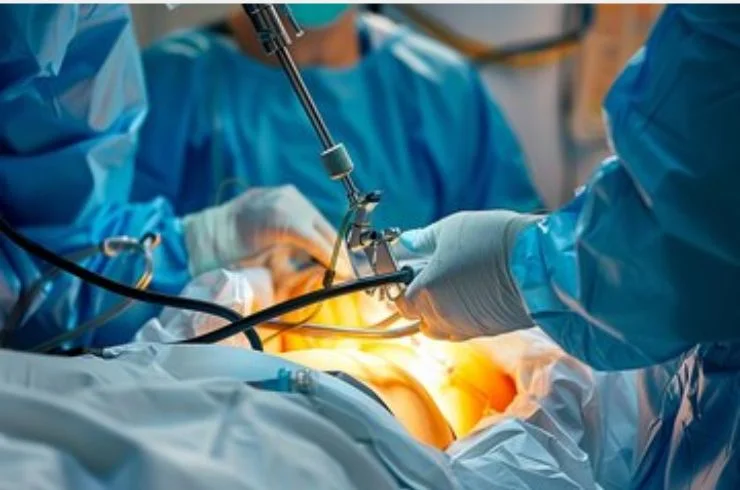
Laparoscopic surgery, also known as minimally invasive surgery, is a modern surgical technique that allows surgeons to perform complex procedures using small incisions and specialized instruments. At Saru Hospital, we offer advanced laparoscopic surgery for a wide range of conditions, ensuring quicker recovery, reduced pain, and minimal scarring. Our skilled surgeons use state-of-the-art technology to provide effective and precise surgical care with a focus on patient comfort and safety.
Laparoscopic surgery involves the use of a small, flexible tube called a laparoscope, which is inserted through tiny incisions made in the skin. The laparoscope is equipped with a camera and light, allowing the surgeon to view the internal organs on a high-definition monitor in real-time. This technique is used to treat various medical conditions, including those related to the abdomen, pelvis, and gastrointestinal system. Laparoscopic surgery is typically associated with shorter recovery times, less pain, and reduced risk of complications compared to traditional open surgery.
Laparoscopic surgery can be used to treat a variety of conditions, including but not limited to:
The laparoscopic surgery procedure generally involves the following steps:
Before your laparoscopic surgery, our team at Saru Hospital will guide you through the necessary preparations, which may include:
After laparoscopic surgery, most patients experience a quick recovery. However, following the post-operative care guidelines is essential for a smooth recovery:
If you need laparoscopic surgery or have questions about whether it is the right option for your condition, Saru Hospital in Mumbai is here to help. Contact us today to schedule a consultation with our expert surgical team and learn more about how laparoscopic surgery can benefit you.
It’s a minimally invasive surgery, like a keyhole surgery. Surgeons use a tiny camera and small cuts in your belly or pelvis to see inside and operate. This lets them diagnose and treat problems without a big incision.
It depends on what’s being done. Removing your gallbladder or getting your tubes tied are minor procedures. However, some laparoscopic surgeries are more complex and major.
No, you’ll be asleep during the surgery with general anesthesia. Laparoscopy usually means less pain after surgery because the cuts are much smaller than traditional surgery.
Yes, as with any surgery. There’s a small chance of injuring organs, bleeding, or other complications. However, laparoscopy is generally considered safe.
Success rates are high for laparoscopy. For example, exploratory laparoscopy is very good at diagnosing problems.
Yes, walking is encouraged! It helps prevent problems and gets you feeling better. But avoid strenuous activities like lifting weights or jogging until your doctor says it’s okay.
Because the cuts are small, recovery is usually fast. Most people can go back to normal activities within a week, with minimal pain and scarring.